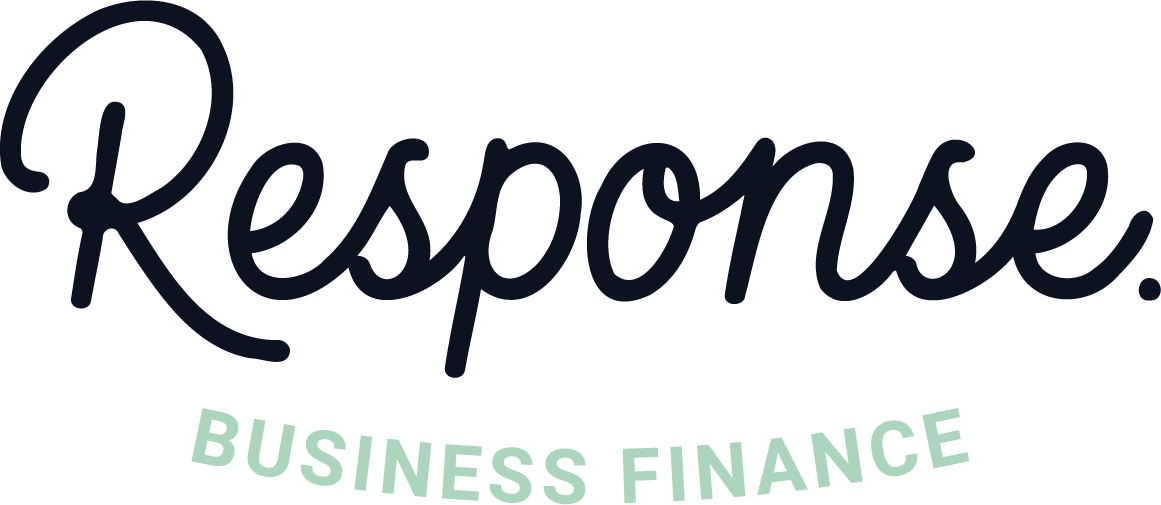
Blog Article by Response Business Finance
Unsecured vs Secured Business Loans: Pros, Cons & Use Cases
Need business funding but not sure whether to go secured or unsecured? The choice affects everything from how much you can borrow to how quickly you get the money. Here’s what you need to know to make the right call for your business.
Secured vs Unsecured Business Loans: Key Differences
Secured business loans require collateral – something valuable you put up as security. If you can’t repay, the lender may repossess the asset used as collateral. Think property, equipment, or business assets.
Unsecured business loans don’t need collateral. The lender relies on your creditworthiness and business performance. No assets at risk, but they’re harder to get and often cost more.
If you’re just getting started and trying to figure out what kind of loan suits your early-stage business, check out our guide on what type of business loan is right for your start-up.
Secured Business Loans: The Pros and Cons
The Pros
- Lower interest rates – Lenders see less risk, so they charge less. You could save thousands over the loan term.
- Higher borrowing limits – Want £500k for expansion? Secured loans can handle bigger amounts because the lender has security.
- Longer repayment terms – More time to pay means smaller monthly payments, helping your cash flow.
- Easier approval – Even with patchy credit history, collateral can get you approved.
The Cons
- Your assets are at risk – If you can’t repay, the lender may repossess your property, equipment, or other business assets used as collateral.
- Longer approval process – Valuations and legal work mean it takes longer to get the money.
- Less flexibility – Some secured loans restrict what you can do with the funds.
Unsecured Business Loans: The Pros and Cons
The Pros
- No collateral needed – Your assets stay safe, even if things go wrong.
- Faster approval – No valuations or legal checks. Some lenders approve within 24 hours.
- More flexibility – Use the money for whatever your business needs.
- Simpler process – Less paperwork, fewer hoops to jump through.
The Cons
- Higher interest rates – Expect to pay more because the lender takes more risk.
- Lower borrowing limits – Usually caps around £250k, sometimes less.
- Stricter eligibility – Need good credit and strong business performance.
- Shorter repayment terms – Higher monthly payments can squeeze your cash flow.
When to Choose Secured Loans
Big Purchases
Buying property, expensive equipment, or funding major expansion? A secured business loan works well for large amounts over longer periods.
Lower Rates Matter
If you’re borrowing a substantial amount, the interest savings on a secured business loan add up fast.
You Have Suitable Collateral
Own property or valuable business assets? Put them to work securing better loan terms.
Real example: A logistics company used asset finance to buy six new vans. The vehicles themselves secured the loan, keeping rates low and spreading payments over five years.
When to Choose Unsecured Business Loans
Quick Cash Needs
Urgent invoice payments, unexpected repairs, or time-sensitive opportunities? An unsecured business loan gets you money fast.
Smaller Amounts
Need £50k or less? An unsecured business loan often makes more sense than going through secured loan processes.
Protecting Your Assets
Don’t want to risk your property or equipment? Unsecured business loans keep your assets safe.
Flexible Funding
Marketing campaigns, staff training, or general working capital? Unsecured business loans give you freedom to spend where needed.
Real example: A beauty salon used an unsecured business loan for new equipment and marketing. Quick approval meant they could launch new services ahead of competitors.
Which Loan Type Fits Your Business?
Go Secured If:
- You need £100k+ for expansion or major purchases
- You have valuable assets to use as collateral
- You want the lowest possible interest rates
- You can wait 2-6 weeks for approval
Go Unsecured If:
- You need money quickly (within days)
- You’re borrowing under £100k
- You want to protect your business assets
- You need flexible funding for various purposes
Not sure what suits your current goals? Our breakdown of loan types for start-ups by use case will help you align funding options with real needs.
Making Your Decision
Think about your specific situation:
How much do you need?
Larger amounts often need secured loans.
How quickly?
Urgent needs usually mean unsecured.
What’s your credit like?
Poor credit might need secured loans for approval.
Can you afford to lose collateral?
If not, unsecured might be worth the extra cost.
What’s the total cost?
Factor in interest rates, fees, and repayment terms.
Getting the Right Funding
Every business is different. A logistics firm buying vehicles has different needs than a salon expanding services. That’s why cookie-cutter solutions don’t work.
Whether you need secured or unsecured funding, the key is finding a lender who understands your business and can structure the right deal. Fast, FCA-regulated advice tailored to your specific situation makes all the difference.
Ready to explore your options? We’ll help you figure out which type of loan works best for your business and find competitive rates from our network of specialist lenders.
Frequently Asked Questions
Mark Squires
Managing Director
Mark Squires is a seasoned professional with a passion for transforming how businesses access finance. As the founder of Response Business Finance (RBF), Mark leads a boutique commercial brokerage built on the principles of sensibility, ethics, and proactivity. His vision is simple yet profound: to make commercial finance personal, offering tailored solutions that empower SMEs to thrive.




